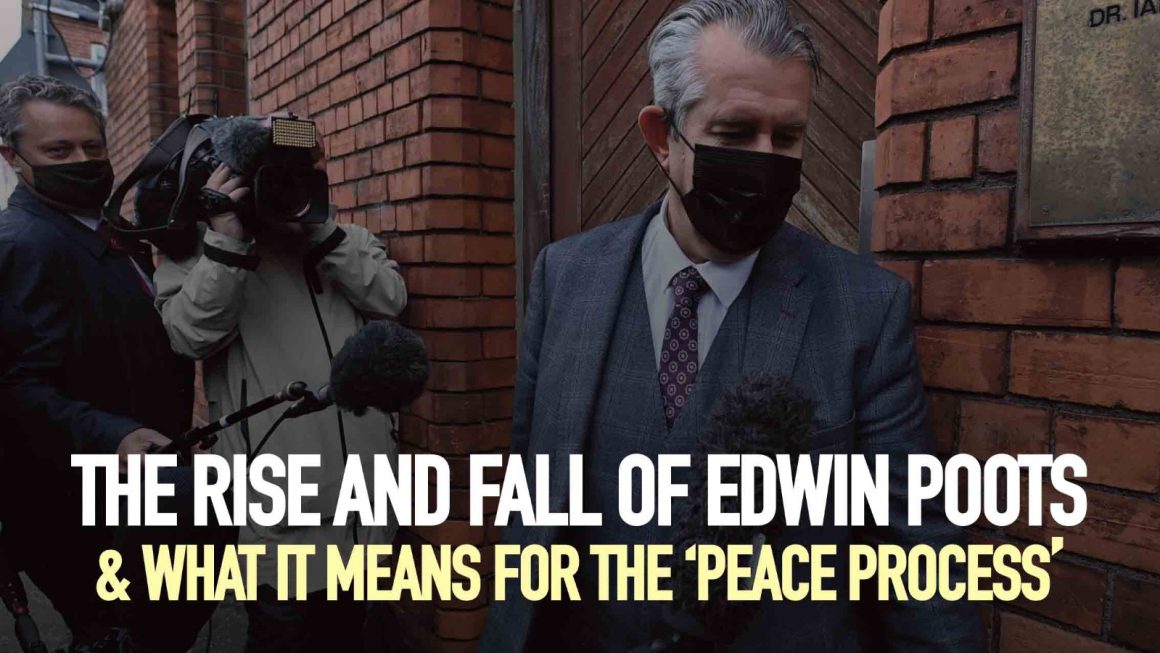Edwin Poots’s brief tenure as DUP leader has come to an abrupt and somewhat farcical end. The nature of his rapid rise and fall, however, underlines the deep instability, not just in his party, but in the ‘peace process’ as a whole.
Arlene Foster was removed because of her perceived failure to stand up against the Northern Ireland protocol, and against Sinn Féin over issues like the Bobby Storey funeral. The selection of Poots by a narrow majority of DUP MLAs and MPs was seen as a shift to a more hardline position. In practice, however, his short-lived leadership looked like a continuation of the status quo.
Poots committed to full implementation of the New Decade, New Approach agreement and even said the DUP would re-engage with the North-South Ministerial Council. When the British government yielded to Sinn Féin’s demand for Irish language legislation to be introduced over the heads of Stormont, and Poots proceeded to nominate Paul Givan as First Minister against the wishes of an overwhelming majority of the DUP’s elected representatives, his fate was sealed.
‘Peace process’ enters turbulent new phase of crisis
This reflects the tension between ‘making the institutions work’ and taking a more strident approach in defence of the Union and in opposition to Sinn Féin’s perceived arrogance. Such an approach is increasingly being demanded by a significant section of the Protestant community, who feel their identity is being undermined and that they are being pushed towards a united Ireland against their will. Whoever emerges as the new DUP leader, they will be under pressure to take a more hardline position on these issues, not just in words but in deeds.
This raises a significant question over the longevity of the power-sharing institutions. If they collapse again, they may not be resurrected, as they have in the past. We are in a new and turbulent period, where the question of Northern Ireland’s place within the Union is becoming increasingly central due to demographic changes, a process which is deepened by Brexit, the rise of support for Scottish independence and the looming issue of a border poll.
Our society remains deeply divided. Politics remains dominated by forces – both Orange and Green – who base themselves on sectarian division and reduce contentious questions to a zero-sum game of winners and losers. This can lead not only to crises at Stormont, but to violence on the streets, as we saw during the recent rioting. If this occurs, working-class communities on both sides of the divide will suffer.
How can sectarian division be overcome?
The only way out of this morass is to build a united movement of workers and young people, based upon our common interests, to challenge the whole sectarian carve-up. We see the potential for such a movement time and again – when workers, in the NHS or in Hovis, stand together on picket lines in opposition to the bosses and Stormont politicians and win; when workers, like the Belfast bus drivers, take united action in response to violence and intimidation; when young people come together in opposition to racism, gender violence and climate catastrophe.
The overwhelming majority in both communities oppose any return to the conflict of the past. We need to build a new peace process – one which brings together working-class communities, not sectarian politicians, in the struggle for a better future for all. That means a struggle against capitalism – which breeds poverty, alienation and division – and for socialist change. On this basis, genuinely democratic solutions can be found to the questions which divide our communities – including the question of borders – in a spirit of solidarity, compromise and mutual respect.












